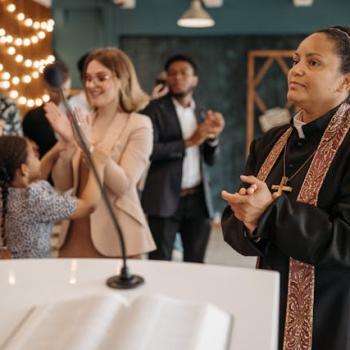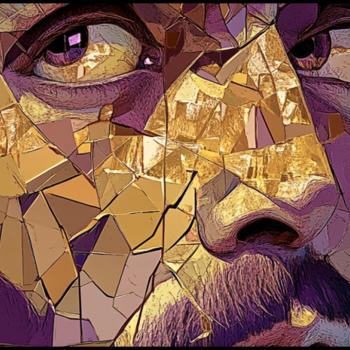I'm always interested to hear how people come to be Heathens. We have a lot of children in Heathenry these days, and their story is simple. Among adults, I often hear about people who had long voyages through other traditions, sometimes several of them. These stories go something like "First I was (Some Kind Of) Christian. Then I became Buddhist. Then I was a Hindu for a while. When I found Wicca, I really thought that was it, until I discovered Ásatrú. So now I'm a Heathen." I know a few people who even attained formal clergy status in one or another of the traditions they adopted before moving on.
I've left out all the motivational details. These are the best parts of such stories: why someone made a change. I get the feeling that, for a few people, spirituality and religion are like a trip to the mall, with opportunities to shop in lots of stores where you can try things on for fun. For most others, it's just a process of sequential discovery, with each step providing a better understanding of a particular person's needs.
For me, some of the most interesting people are those who can't or won't distinguish between representation and referent, or between myth and history. When I say interesting here, I don't mean it in a good way. I've never taken a poll, but resistance to these distinctions seems to be uncommon in our community, while it is practically a requirement of membership in others.
When I look across the scope of religion in general, I'm often struck by a question that's implicit in any discussion, but rarely spoken out loud:
What are gods, and what does it mean to believe in them?
It doesn't take much experience to notice that different people have very different answers to this question, but we go along in our discussions as if we're all in happy agreement on the meanings of these words. And thereby hangs much of the world's misery.
Many people insist that the answer to this question, if it is brought out into the open and pressed, must necessarily be their own. Their attitude creates another implicit question: How could it be otherwise? And once they've posed this question, they show an absolute disinterest in any answer.
But otherwise can turn out to be very interesting, and in a good way, when I listen to people who answer the first question differently from the way I do. I recommend this to you. There are subtle things to be learned in all kinds of places. Some of them can only be caught when you let them sneak up on you.
Listening can be hard. I don't know about you, but I've spent a lot of time thinking about my outlook, and it's very tempting to jump into a discussion that's going in a different direction with That's wrong! The thing I have to remember is that, for the person doing the talking, That's right! I may never agree with them, but I can often still learn from them. One of the more profitable approaches is to ask:
So, how did you get to where you are?
Here's my answer:
I remember very well, and unusually far back into my childhood. Part of what I remember is going to church. This church was one of the so-called mainstream Christian churches back in the '50s and '60s, not the fire-breathing kind. Many of the noteworthy people in our city went to church there, back when pretty much everyone went to church. I liked, respected, and admired the people who surrounded me on Sunday morning.
Sunday School was a different matter. Mom and Pop made me go. I listened to the stories. I knew they were supposed to be important. The people around me seemed to think they were important. My internal response was uniform: You must be kidding! I did what I could to find some way to take them seriously, without success.
I'm not sure if I was 3 years old, or 4, when one of my uncles came to visit. The topic of my full name came up, and I pronounced it for him proudly: Steven Thor Abell. My uncle was impressed, the way uncles are when they come to visit nephews and nieces. Thor was, after all, the god of thunder. Really?! I hadn't known that. I asked my parents about this, but they didn't know anything to tell me. They had given me that name because they liked the name.
It was a year or so later when Mom came home from the library with an armload of books on Norse Mythology. She read them to me. We weren't very far into stories about Thor and Odin and Freya and others, when one of the voices I use to talk to myself announced all on its own: Hey, wait a minute: I know these gods. That seemed pretty remarkable. Then another one of those voices, the one that speaks in the second person, said derisively: Nah, you're just saying that because of your name. The first voice quickly replied: No, I know them. Really. There was a long pause in this discussion as Mom continued reading. Then the second voice said: Yes, you're right. We do.





